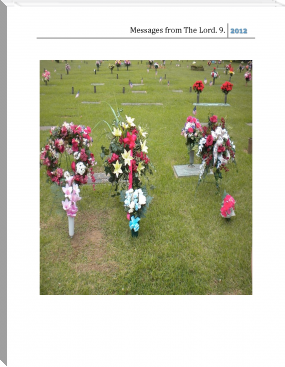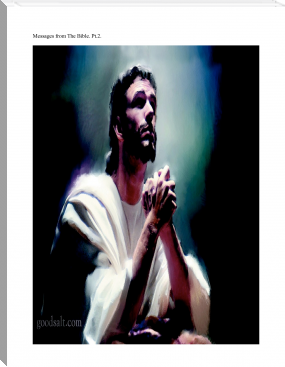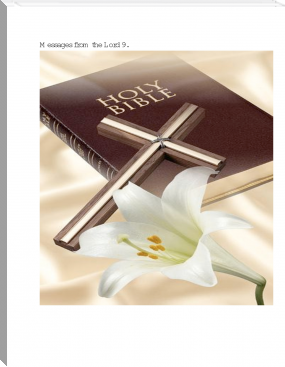The Life Beyond the Veil Volume I: The Lowlands of Heaven - George Owen, Kenroy Hunter, Geoff Cutler (best novels for beginners .TXT) 📗

- Author: George Owen, Kenroy Hunter, Geoff Cutler
Book online «The Life Beyond the Veil Volume I: The Lowlands of Heaven - George Owen, Kenroy Hunter, Geoff Cutler (best novels for beginners .TXT) 📗». Author George Owen, Kenroy Hunter, Geoff Cutler
their best to get the woman back again amongst them. That is why he needed help. He walked on one side and she walked on the other side of the poor torn and tortured soul who was more than half in a swoon. They went very slowly for her sake now, walking in the ray of light towards the tower on the Bridge. We had never seen anything like this before, except once, and that I have recounted to you. I mean the Pavilion of light and the assembling of the people of many coloured dresses. But this was, in a way, much more solemn; for here was anguish in the midst of joy, and there joy alone. They reached the Bridge, and the rescued one was taken into one of the houses and tended, and there remained until she had sufficiently recovered to be handed over to our care.
Now, there are several points in this narrative which held new knowledge for us, and some which confirmed what had been mere surmises up to the time of that experience. Some of these I will name.
It is a mistake to think that Angels, even of such estate as those two who went and rescued that poor woman, are unable to suffer. They do suffer, and that frequently. And it is possible for the malicious ones to hurt them when they venture into their regions. Theoretically I cannot see why the evil ones should not now and then prevail so as to get them into their power. So well, however, are the powers of light and good organized, and so watchful, that I have
not heard that this catastrophe has ever been known actually to happen. But their fight is a real fight, and fatiguing also. That is the second point. Even these high Angels can become fatigued. But neither their suffering nor their fatigue do they mind. It may sound a paradox, but it is nevertheless true, that it is a joy to them to suffer so when some poor struggling soul is to be helped.
Also that light-ray—or perhaps I should say “ray of power and vitality”—was so strong that, had they not protected the woman by surrounding her with a certain negative influence, it would have harmed her, because it would have been too great a shock to one so unprepared as she.
Another point is this. That ray was seen far out in the region of gloom, and we heard a murmur coming, as it seemed, from hundreds of miles away, down across the valley. It was a strange experience, for the sound was that of many voices, and some were of rage and hate, and others of despair, and others cries for help and mercy. And these and other different cries seemed to be gathered each in its own particular locality, and to come from different directions. We could understand but little, but afterwards, while we waited for the rescued one, we asked Beanix— (I am afraid I cannot do better than that, so it will have to stand. We will call her Beanix, but it does not look quite correct when written down)—we asked her about those
cries and where they came from. She said she did not know, but that there was provision for their registration, both collectively and individually, for their analysis, and that they would be scientifically treated in this science of love, and that then help would be sent out according to the merit of those who cried, and also in such form as would best be of service. Each cry was an evidence either of good or bad in some human soul in that region, and would receive its appropriate answer.
When the woman was handed over to us we first let her rest and surrounded her with a quiet restful influence, and then, when she was strong enough, led her away to a home where she is being cared for and tended.
We did not ask her any questions, but let her ask the few she was able to put to us. But I found that the poor thing had been in that dark land for more than twenty years past. Her life history on Earth I have partly learned, but not enough to make a connected narrative. And it is not well to remind them too vividly at first of the Earth they have left so long ago. They usually have to work back from the present through their experience in the spirit life, in order to understand it and the relation of the whole—cause and effect, sowing and reaping—all explained.
That must serve for this time. Good-bye, dear, and God’s blessing and our prayers shall be with and for you.
May He keep you in His peace.
Amen.
1 See chapter 1.
2 See chapter 2.
3 The reference to the Study Circle needs a note of explanation. It was on the previous Monday. I sat in the Sanctuary between the rails, and the members were facing each other in the choir stalls, Miss E. sat on my right at the Sanctuary end of the stall.
She afterwards told me that, when I was summing up the debate, she saw my mother step forth from the altar and come forward behind me with outstretched arms and a look of intense yearning and love on her face. She was exceedingly bright and beautiful, and her body looked as substantial as that of any of the others present. Miss E. thought she was going to clasp me in her arms, and it was so vivid that she forgot, for the moment, that the form was not of flesh and blood, and, therefore, could not be seen by the others.
She was on the point of crying out when she suddenly recollected herself, but had to look away in order to suppress her exclamation. It was about this I wished to ask the question.—G.V.O.
4 Arnol here referred to, for the first time, eventually communicated through the Rev. G. V. Owen a series of messages of a very high order, which are published in Volumes 3 and 4 of the Life Beyond the Veil. —H.W.E.
5 See chapter 1.
Chapter 4
The City and Realm of Castrel
To the City and Realm of Castrel—The House of Castrel—Still-born children, not lost but gone before— Waters of life, Death and beyond death, no gap—Earth made perfect—The Manifestation in the old Council Chamber—Jolly Hooper interrupted—Traversing the spheres—“The Stars are the Angels”—The harp of light— The Summerland of God: its atmosphere—Departure from the City of Castrel—Wilfulness.
Friday, October 17, 1913
BY the time we had reached the Horne where we were charged to leave our poor sister, now so blessed, we were
aware of another mission allotted to us. We were bidden to go to another district farther to the East…. You again
hesitate, but that is the word we want. By the East we mean the direction from which the Brighter Light is seen over the mountains which border the plain where the Vision of the Christ and the Cross had been given to us. We often speak of that direction as the East because it reminds us of the Sunrise.
We set off, the five of us, all women, and kept before us the description we had received of the place we were to seek. We were to look for a great city among the mountains, with a golden dome in the midst of it, and the City itself surrounded by a colonnade on a terrace which ran round the City on all sides. We walked over the plain, and then went through the air, which requires more exertion, but is more speedy, and, in a case like ours, more convenient in enabling us to get a view of the country.
We sighted the City and descended before the principal gateway, by which we entered the main thoroughfare. It ran straight through the City and emerged through another gateway on the other side. On each side of this broad street there were large houses, or palaces, in spacious grounds, the residences of the principal officials of that district of which the City itself was the Capital.
As we came towards the City we had seen people
working in the fields, and also many buildings, evidently not residences, but erected for some useful purpose. And now that we were within the City walls we saw the perfection of both buildings and horticulture. For each building had a typical garden to match it both in colour and design. We passed on, waiting for some sign as to our destination and mission, for on such occasions as this a message is always sent on ahead, so that the visitors are expected.
When we had gone some way we entered a large square, where beautiful trees grew on lawns of the greenest of green grass, and fountains played a harmony together; that is to say, there were perhaps a dozen fountains, and each had a tone of its own, and each was composed of many smaller jets of water, each being a note. These are manipulated, on occasion, so that a fairly complicated piece of music can be played, with an effect such as that produced by an organ with many stops. At such times there are large numbers of people assembled in the square, or park, as I might call it, both of the citizens and also those who dwell outside among the hills and pastures. But when we came to it the fountains were playing a simple series of chords, in perfect harmony, and with most pleasing effect.
Here we lingered for awhile, for it is exceedingly restful and beautiful. We sat and lay upon the grass, and
presently there came towards us a man who, by the smile on his face as he approached, we knew was the one who had been expecting us. We arose and stood before him in silence, for we did not feel inclined to begin the conversation, as we saw he was an angel of some degree considerably above us.
Please describe him, and give me his name if possible.
All in good time, dear. We learn to eliminate impatience here as a thing which confuses without adding impetus to the matter in hand.
He was tall—much taller than the average man on Earth I should say he would be some seven and a half feet high in Earth measurement. I am considerably taller than I was when with you, and he was much taller than I am. He wore a cream-coloured tunic, almost to his knees, bare arms and legs, and no sandals. You see I am answering what you are questioning in your mind. No, he had nothing on his head, but a beautiful veil of soft brown hair, parted in the middle and curling round his face and neck. One broad fillet of gold he wore, and in the centre and at the sides were set three large blue stones. He wore a belt of silver and some pink metal mingled, and his limbs shone with a soft glow. And these points, together with others, told us of his high degree.
There was also a calm benevolence and power in his firm but kindly countenance which gave both peace and trustfulness to us, as we stood before him, but also induced a reverence which we were glad to pay to one of such real worth as he.
He spoke at last, quietly, modulating his voice, as we instinctively knew, to our case. We could, nevertheless, detect the reverberating power in the tone of it. He said, “My name is Cast—”. I am sorry. These names seem to be one of my weaknesses. They always perplex me when I try to reproduce them down here. But never mind his name for the moment. “I am C.,” he said. “You have already heard of me from your own Superior, and now we meet in person. Now, my sisters five, come with





Comments (0)